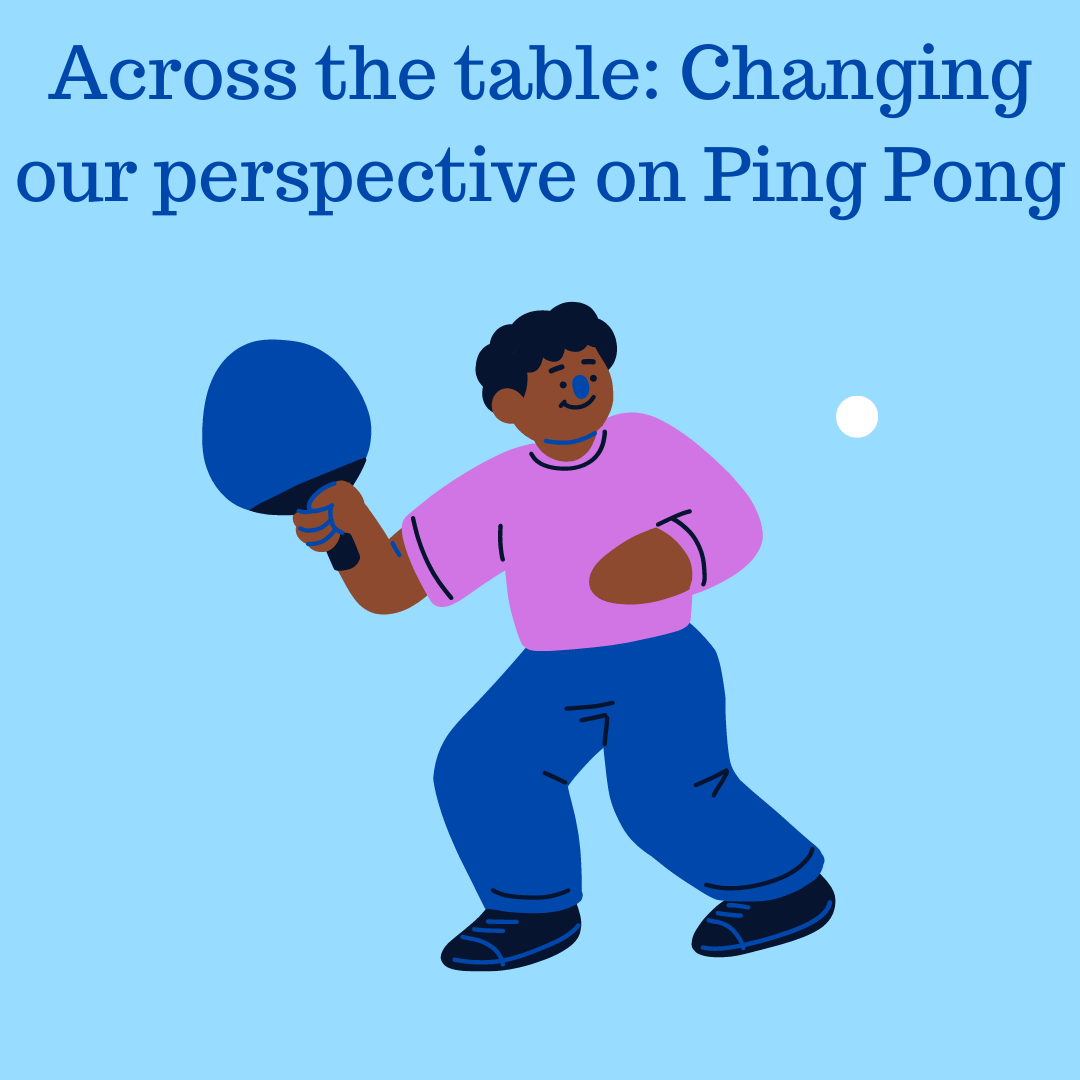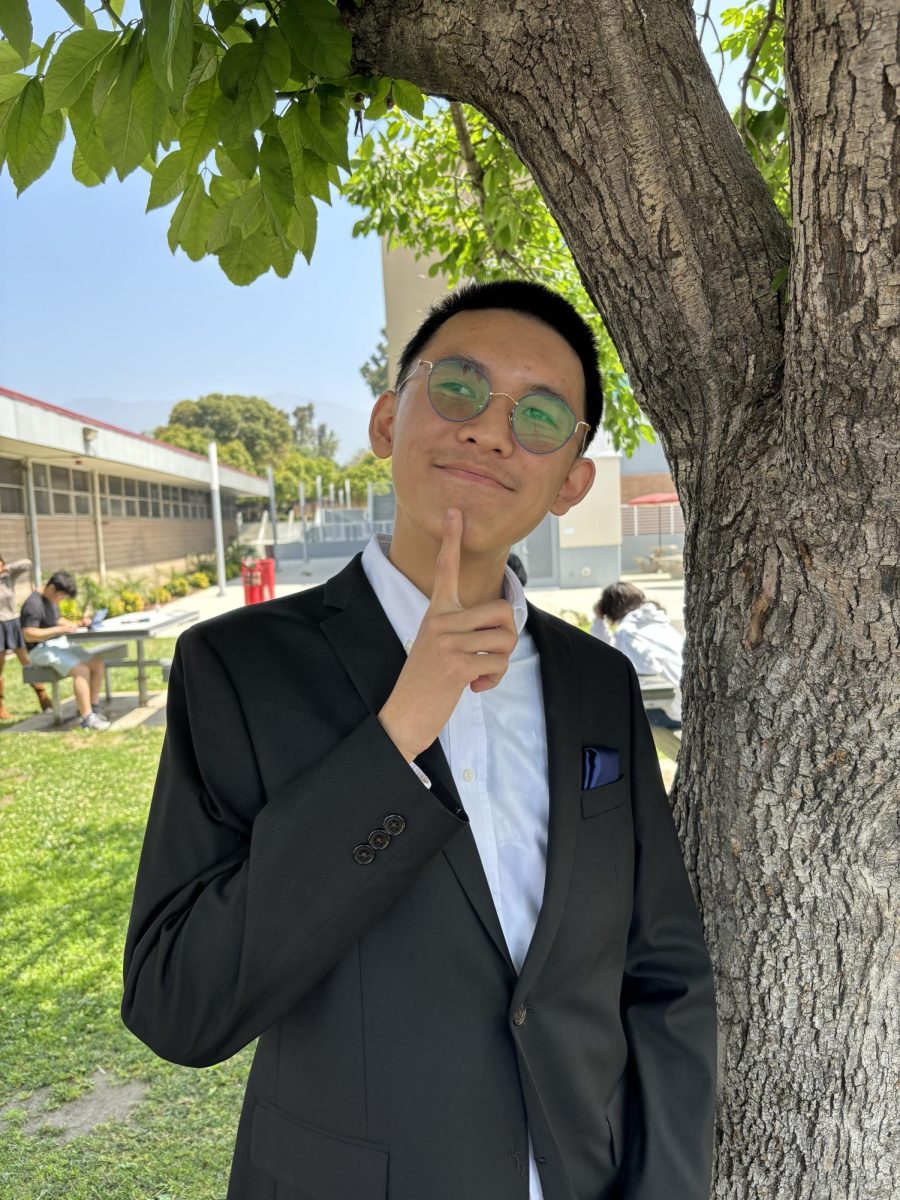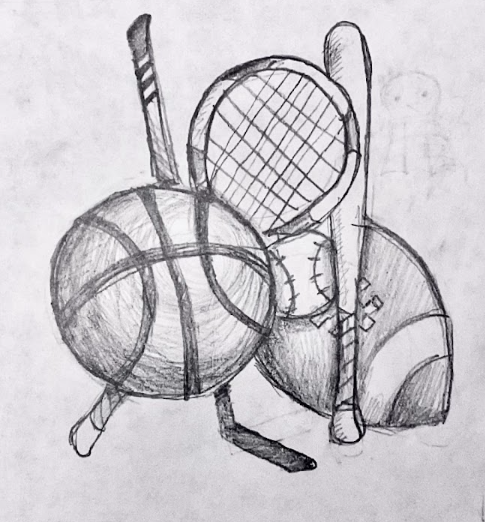Sweat pools onto the glistening black table top as your eyes follow the small white ball catapulting across each side with a great level of concision and power. The crowd roars with enthusiasm as the winning score isn’t a slam dunk but a smart move that graciously bounces off the corner of the table. This precision-focused sport is regarded as ping pong, or more formally, table tennis.
The sport of ping pong originated in the late 1800s of England where the 1st World Table Tennis Championships was held in London. This sport became widespread as it trickled throughout Asian countries by colonization and trade, making it an integral sport in many of those areas. Table tennis quickly became one of the most popular international sports with an estimated 300 million active players. This sport has been recognized by the Olympic program since 1988 and many countries participate often. While table tennis is highly popularized in Asian countries, it has significantly less media attention in public high schools like Claremont, where there is not even a table tennis team.
While table tennis is highly popularized in Asian countries, it has significantly less media attention in public high schools like Claremont, where there is not even a table tennis team.
Americans just do not feel the same amount of spirit for ping pong as they do for other sports like football. Despite the historical creation of ping pong in England, many people strongly associate ping pong with China because of their accomplishments, and close connection to the sport after ping pong was declared as China’ national sport by Chairman Mao. Since then, China has won 16 gold medals in the Olympics and 17 world singles titles since 1961. Historically, there has also been no non-asian women to win a world championship or gold in an Olympic award since 1995.
Accomplishments of ping pong go far beyond the connection it ties to Asian culture. There are also a multitude of benefits for playing ping pong. The Lai Times found that playing ping pong at a young age is able to improve IQ through strategic thinking, mental reactions, and cognitive skills. The British Heart Foundation also finds that table tennis is able to significantly decrease the likelihood of a heart attack by strengthening and mobilizing circulation.
Apart from personal health benefits, there is a story of ping pong in global diplomacy. The story starts with Glenn Cowan meeting Zhuang Zedong on a shuttle bus during the 1971 World Table Tennis Championships in Nagoya, Japan. They exchanged words and gifts that led up to a surprise invitation to the American ping pong team, an all expense paid trip to visit China. This historical event was even depicted in the movie Forrest Gump where he picked up playing ping pong and traveled to China, referencing this event.
Ping pong is a sport that should be recognized for more than just their game matches, it is an integral part of many cultures and also a tool for individuals and nations. The strategic nature of ping pong has led it to blossom into a sport requiring innovative strategies and smart plays, even advancing it to the next level of strategy to building and connecting nations. In a world where there are only mainstream media controlling the sports page, it might be time to pick up that paddle.
Across the table: Changing our perspective on ping pong
Donate to The Wolfpacket
$85
$500
Contributed
Our Goal
Hello there! Our goal is to provide relavent, engaging journalism for readers of all ages. Your donation will support the student journalists of the Wolfpacket at Claremont High School, and will allow us to purchase equipment, print our monthly issues, and enter in journalism competitions. We appreciate your consideration!
More to Discover
About the Contributor

Fiona Wu, Reporter
Fiona Wu is a sophomore at CHS and a first-year reporter on The Wolfpacket staff. This year, Wu is balancing many items on her plate, including her position on the school’s Junior Varsity Volleyball team, speech and debate, and her newly created Voter’s Turnout club. Currently in school, Wu’s favorite subject is history and she is looking forward to spending the next school year with her teachers and classmates. Outside of school, Wu has dedicated her time to setting up her Voter’s Turnout Club, attending speech and debate tournaments, and pursuing her interests in the humanities. Wu looks forward to her first year in The Wolfpacket, especially attending the late nights.
















